"I'm a very lucky artist. I make my living from it."
The copyright/plagiarism issue has been shuffling along since we last spoke of it here, when I linked to Jonathan Lethem's article in Harper's of January 30.
Writing in the free world : Jonathan Lethem explains why copyright laws stifle creativity and why he's giving away the film rights to his new novel.---Salon.com March 25 (link via Neil Gaiman)
In response to an observation about the meagre $6,000 dollar advance for his first novel: " Sure, but it wasn't strengthening of copyright control that allowed me to make more money after that; it was because I found some readers. Even if my rights were Kryptonite and lasted 1,000 years, if no one read my books, they wouldn't be worth a penny. The economy of human attention is a very precious one, much scarcer than any other. I'm lucky to be in the position of having anyone notice that I've given something away in the first place."
"I'm a very lucky artist. I make my living from it. I didn't know if I ever would. I'm very persuaded by the image that Lewis Hyde offers of an artist who is, by definition, in whatever medium, or whatever level of success or whatever culture, in the practice of culture-making; participating in culture by making stuff is inherently a gift transaction and a commodity transaction. And it always will be. The question is how do we affirm and clarify this relationship? Because it's a very weird one -- making commodities that are also gifts.
Lethem already made special reference to Lewis Hyde, and his concept of 'the gift economy' in the Harper's essay. This review (I think nov 2005) by JoAnn Schwartz of Hyde's The Gift: Imagination and the Erotic Life of Property (Vintage Books, 1983) goes a long way to explaining what Hyde was talking about.
"Hyde is deeply interested in the transformative gift: the gift that changes us profoundly, often received in the form of psychological healing or spiritual teachings. An important aspect of a transformative gift is that the transformation is not instantaneous; it requires the recipient to undertake some extensive and often difficult inner work in order to effect the transformation completely. What motivates us to undertake this labor? In general, it is a feeling of love and gratitude toward our teacher or therapist. This can lead to problems in today's market economy, where healing and teaching are frequently sold rather than freely given. After all, even a gifted teacher, therapist, or spiritual guide must eat! It is nonetheless possible for an element of the gift economy to circulate above the cash.
In science, as elsewhere, the circulation of gifts produces and maintains community, whilst the conversion of gifts to commodities fragments or destroys that same community. However, we are now witnessing the commodification of ideas within the scientific community. Universities and industrial laboratories, which used to produce basic research that was released into 'the public domain' now patent and otherwise protect their research. Discoveries emerge not as contributions but as proprietary ideas for which users must pay a fee, a usury. This trend began in the late 1970's and early 1980's with biotechnology, but here and now, at the end of the millennium, it seems to have spread to most fields of scientific inquiry. How does the "group mind" necessary to produce theoretical physics/chemistry/biology survive the free-market?"
Patent Office (UK) wants evidence to justify new copyright exceptions for artists. (again via Neil)
The Open Rights Group (ORG) is corralling information.
contribution from one John Harding, mar 22: "The conventional publishing industry does a valuable job, but only where there is large money to be made to fuel its necessarily ponderous machinery. A few years ago a friend of mine who was running a chamber music summer schools for amateurs wanted to let them play a pleasant little work by, I think, Panufnik, or possibly Penderecki. They contacted the publishers, asking to buy parts, but were told that the parts were not on sale, but could be hired. The cost would be £100. The work lasted perhaps five minutes. It is not a work that any string orchestra would think of scheduling into a programme. The publishers have effectively killed it.
The internet, software, desktop publishing and the existence of people like the founder of Merton Music, have made possible the creation and dissemination of work that would never bring profits to traditional publishers. We are living in exciting times, whose surge of intellectual activity will be seen in retrospect as putting the Renaissance in the shade.
Of course the corporations want to keep a strangle hold on it.
The move towards criminalising copyright violation significantly changes the picture. A single fine at the level sought by corporate lobbyists could ruin someone who would currently be able to achieve amicable settlement of an honest mistake under civil law. There will be people who will no longer dare act on common sense."
Joyce letters court case settled--BBC News Sunday, 25 March 2007
"A US university professor has won the right to quote letters between Irish writer James Joyce and his daughter in a book after settling a court case".
I got the link for that one at Ownit- The creative London Intellectual Property Advice Service where you can find regular updates on such matters as
Will Charwoman take Family Guy to the cleaners?--19 Mar 2007
Disney gets tough with students acting as nuns this week... etc
*****
more on 300, the movie, (via Heidi) Men Gone Wild by David Denby in this week's New Yorker:
"...perhaps the nuttiest film ever to become an enormous box-office hit. Based on a graphic novel by Frank Miller, the movie is a porno-military curiosity—a muscle-magazine fantasy crossed with a video game and an Army recruiting film."
"Pop has always drawn energy from the lower floors of respectability; this movie, in which fan-boy cultism reaches new levels of goofy chaos and sexual confusion, draws energy from the subbasement."
Made in a time of frustration, when Americans are fighting a war that they can neither win nor abandon, “300” feels like the product of a culture slowly and painfully going mad."
******
via circulating email of notable quotations.
"The word "genius" isn't applicable in football. A genius is a guy like Norman Einstein." --Joe Theisman, NFL football quarterback & sports analyst.
Writing in the free world : Jonathan Lethem explains why copyright laws stifle creativity and why he's giving away the film rights to his new novel.---Salon.com March 25 (link via Neil Gaiman)
In response to an observation about the meagre $6,000 dollar advance for his first novel: " Sure, but it wasn't strengthening of copyright control that allowed me to make more money after that; it was because I found some readers. Even if my rights were Kryptonite and lasted 1,000 years, if no one read my books, they wouldn't be worth a penny. The economy of human attention is a very precious one, much scarcer than any other. I'm lucky to be in the position of having anyone notice that I've given something away in the first place."
"I'm a very lucky artist. I make my living from it. I didn't know if I ever would. I'm very persuaded by the image that Lewis Hyde offers of an artist who is, by definition, in whatever medium, or whatever level of success or whatever culture, in the practice of culture-making; participating in culture by making stuff is inherently a gift transaction and a commodity transaction. And it always will be. The question is how do we affirm and clarify this relationship? Because it's a very weird one -- making commodities that are also gifts.
Lethem already made special reference to Lewis Hyde, and his concept of 'the gift economy' in the Harper's essay. This review (I think nov 2005) by JoAnn Schwartz of Hyde's The Gift: Imagination and the Erotic Life of Property (Vintage Books, 1983) goes a long way to explaining what Hyde was talking about.
"Hyde is deeply interested in the transformative gift: the gift that changes us profoundly, often received in the form of psychological healing or spiritual teachings. An important aspect of a transformative gift is that the transformation is not instantaneous; it requires the recipient to undertake some extensive and often difficult inner work in order to effect the transformation completely. What motivates us to undertake this labor? In general, it is a feeling of love and gratitude toward our teacher or therapist. This can lead to problems in today's market economy, where healing and teaching are frequently sold rather than freely given. After all, even a gifted teacher, therapist, or spiritual guide must eat! It is nonetheless possible for an element of the gift economy to circulate above the cash.
In science, as elsewhere, the circulation of gifts produces and maintains community, whilst the conversion of gifts to commodities fragments or destroys that same community. However, we are now witnessing the commodification of ideas within the scientific community. Universities and industrial laboratories, which used to produce basic research that was released into 'the public domain' now patent and otherwise protect their research. Discoveries emerge not as contributions but as proprietary ideas for which users must pay a fee, a usury. This trend began in the late 1970's and early 1980's with biotechnology, but here and now, at the end of the millennium, it seems to have spread to most fields of scientific inquiry. How does the "group mind" necessary to produce theoretical physics/chemistry/biology survive the free-market?"
Patent Office (UK) wants evidence to justify new copyright exceptions for artists. (again via Neil)
The Open Rights Group (ORG) is corralling information.
contribution from one John Harding, mar 22: "The conventional publishing industry does a valuable job, but only where there is large money to be made to fuel its necessarily ponderous machinery. A few years ago a friend of mine who was running a chamber music summer schools for amateurs wanted to let them play a pleasant little work by, I think, Panufnik, or possibly Penderecki. They contacted the publishers, asking to buy parts, but were told that the parts were not on sale, but could be hired. The cost would be £100. The work lasted perhaps five minutes. It is not a work that any string orchestra would think of scheduling into a programme. The publishers have effectively killed it.
The internet, software, desktop publishing and the existence of people like the founder of Merton Music, have made possible the creation and dissemination of work that would never bring profits to traditional publishers. We are living in exciting times, whose surge of intellectual activity will be seen in retrospect as putting the Renaissance in the shade.
Of course the corporations want to keep a strangle hold on it.
The move towards criminalising copyright violation significantly changes the picture. A single fine at the level sought by corporate lobbyists could ruin someone who would currently be able to achieve amicable settlement of an honest mistake under civil law. There will be people who will no longer dare act on common sense."
Joyce letters court case settled--BBC News Sunday, 25 March 2007
"A US university professor has won the right to quote letters between Irish writer James Joyce and his daughter in a book after settling a court case".
I got the link for that one at Ownit- The creative London Intellectual Property Advice Service where you can find regular updates on such matters as
Will Charwoman take Family Guy to the cleaners?--19 Mar 2007
Disney gets tough with students acting as nuns this week... etc
*****
more on 300, the movie, (via Heidi) Men Gone Wild by David Denby in this week's New Yorker:
"...perhaps the nuttiest film ever to become an enormous box-office hit. Based on a graphic novel by Frank Miller, the movie is a porno-military curiosity—a muscle-magazine fantasy crossed with a video game and an Army recruiting film."
"Pop has always drawn energy from the lower floors of respectability; this movie, in which fan-boy cultism reaches new levels of goofy chaos and sexual confusion, draws energy from the subbasement."
Made in a time of frustration, when Americans are fighting a war that they can neither win nor abandon, “300” feels like the product of a culture slowly and painfully going mad."
******
via circulating email of notable quotations.
"The word "genius" isn't applicable in football. A genius is a guy like Norman Einstein." --Joe Theisman, NFL football quarterback & sports analyst.
Labels: copyright, legalities, plagiarism, writers
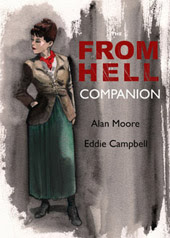
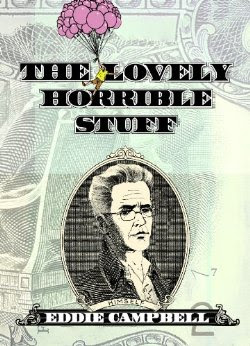

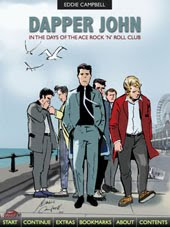
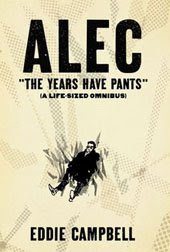


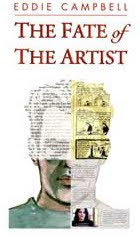
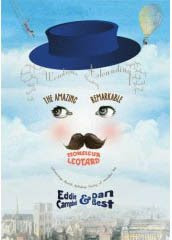

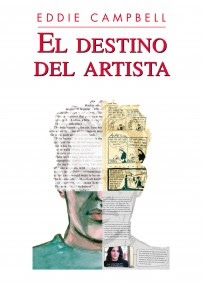

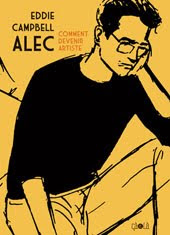

7 Comments:
Ah but Norman Einstein was a true genius. Who can forget the self-climbing stairs, the automatic beetles, or the fish translators? Honestly, we are lucky if a Norman Einstein comes along once in a generation, to reinvent how the city of Birmingham relates to its bus service while filling the air with the scent of virgin pine.
That phrase "The economy of human attention" is a great one.
There's a great example of this in the case of a friend who makes bits of abstract electronic music in his spare time. One evening he produced a very short piece from a sample of a Fender Rhodes keyboard that he named "DD Rhodes". In time this was released on a 7" single by a vinyl-loving colleague and sold a few (not many) copies but it did get noticed by a small German label who included it on a compilation of recent electronic music.
Copies of that compilation then made their way around Europe and my friend started to receive surprising requests: like one from the video director in Norway who'd heard his piece and wanted to use it in an ad he was shooting for the Norwegian postal service. And another from the record label that produces the "Back to Mine" series of favourite records by famous people. Neil Tennant of the Pet Shop Boys had heard the piece somewhere and wanted it included among his music selection. My friend has never made much (if any) money from this at all; but the economy of human attention has conspired to put the results of his computer doodling in places he never would have imagined.
300: I've read some funny frothing-at-the-mouth reviews of this from people who would rarely agree on much at all, namely gay men and hard-right Republicans (are there any other kind these days). Some gay guys seem to love the muscle-bound hysteria and leather underwear and regard it as a new piece of camp, like Steve Reeves for the digital age. The Bush-lovers (pun intended, euphemism fans) see it as an example of brave and bold MEN standing fast against the dark-skinned hordes. Nice to know that Frank's psychopathologies can unite his audience, eh? Just don't mention the sex habits of the Spartans...
There's open source software.
Why couldn't we have open art in the same way ?
The zombie-novel writer David Wellington gives his books away for free on the internet. However, sales of his novels in hardcopy are quite brisk and he was quoted on NPR that he will earn royalties to the tune of over "$75K" this year. The fact that his novels can be read for free on the internet not only doesn't seem to be harming sales of the books, but apparently is boosting sales.
Strange but true.
Since Alan Moore rejects movie rights funds (he gives them to his co-creators, right?) seems to bear out what Lethem is saying. The graphic novels sales of stuff like V FOR VENDETTA and FROM HELL were pretty darned good when the films appeared...so technically Moore doesn't need no steenking film money. (Not that I'd turn it down, mind you.)
re: 300.
I think I mentioned that I pointed out to some homophobic rubes on another website that they were ranting and panting over a truly obviously homoerotic film. Things there got really quiet after that.
Great post! Lots to think about, too. Thanks for that.
The more I think and read about copyrights and artists, the more I feel something desperately needs to be done. It seems there are saner countries where this hold on creativity doesn't exist (the home of ThePirateBay.org must have a different take on things, for example), but it saddens me that it's so bad in the UK and US, and probably lots of other places, too.
I was listening to a podcast on that discussed the merits and drawbacks of "fan edits" of films (made popular by the so-called "Phantom Edit" of "Star Wars: The Phantom Menace"). These sorts of projects are undertaken usually because the person cares so much about the original work. Even if they seek to "improve" it, they're only doing so because they care in the first place. It really made me think just how positive such things are, and what the people involved might be able to learn and also create from such endevours. Even George Lucas, if I recall correctly, was impressed with the idea that someone could create their own version using household technology, but soon afterwards the Lucas-Lawyers stepped in and said, "What Mr. Lucas meant to say was..." (you can guess the rest).
I've seen fans of computer games take it upon themselves to create updates, revamps and even entire sequels to games they've loved. Small groups of people taking on masses of work, on top of their normal jobs, for the sake of their passion.
One of my all time favourite websites, and one that helped lead me to my career as a graphic designer, was one that allowed fans of films share their own alternate covers for their DVD collections. These people redesigned existing artwork because they loved the films so much, they wanted to see them looking their best.
ALL of these projects that I've witnessed were born out of a healthy, wholesome desire to create and driven by passion to share something with others... for free. They weren't created with profit in mind. Nobody did marketing to try and find out what people "wanted". It was all done because the people involved had an idea that they wanted to see come to light, and then hopefully share it with like-minded individuals who could also appreciate it.
All of these projects were shut down by the copyright holders. Not because they posed any real threat, but because, by law, a copyright holder must be seen to protect their property at all times. If they don't, then when a real threat does come along, it can be used against them to prove that they have sent a message out that they weren't pursuing a particular copyright.
It's so sad that such a system exists that pretty much forces copyright holders to pursue non-threatening and non-profit projects that may infringe on their property.
To be fair, I'm sure many of these projects could have been considered sub-standard when compared to the original work, and as such, could be seen as a threat to the quality of the brand. But this can simply be cleared up by a disclaimer and indeed, in my experience, most people are proud that their work is "fan" created, and declare it loudly, leaving no confusion to those they share it with.
I know that this probably doesn't affect most people who read this, and the things I've talked about are probably considered "lower" forms of art, but they're examples of how something positive and creative can be ruined by law, and that saddens me :(
(That was a long comment, wasn't it?)
Those "lower" forms of art are often where people learn a technique that stimulates their creativity enough to go and produce something of their own, so they shouldn't require apologies.
The stuff we call culture is built on endless variations on themes or prior works; folk songs weren't owned by anyone, each singer extemporised, changed the lyrics to include local references, etc. The people most concerned today about "owning" art through indefinite copyright don't create anything themselves.
The author's of Holy Blood Holy Grail, who sued Dan Brown for allegedly stealing their ideas lost their appeal this week, and face £3M in legal bills... http://books.guardian.co.uk/danbrown/story/0,,2044644,00.html
Ben Smith
Post a Comment
Subscribe to Post Comments [Atom]
<< Home